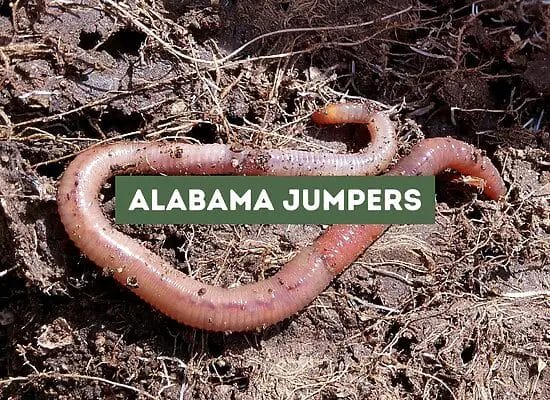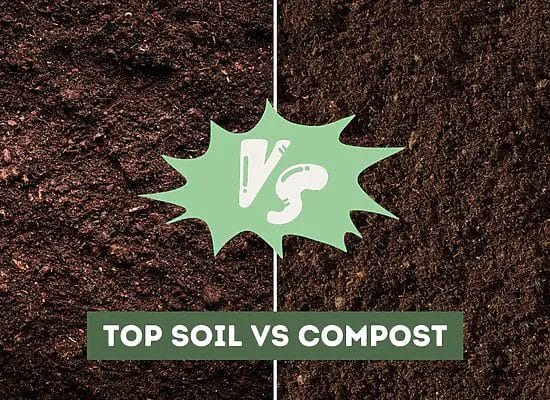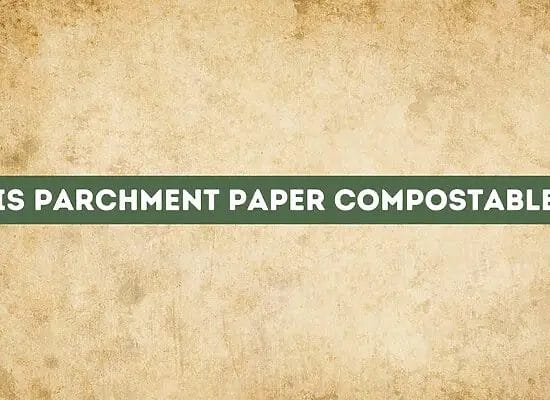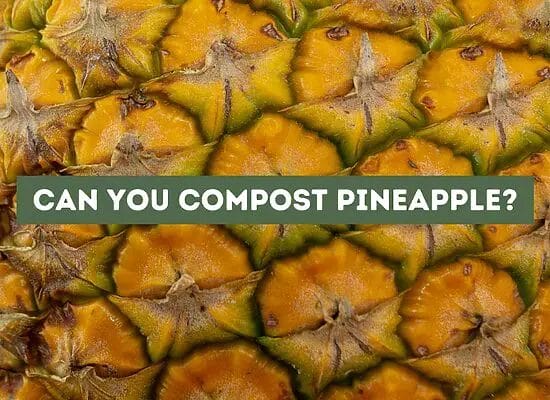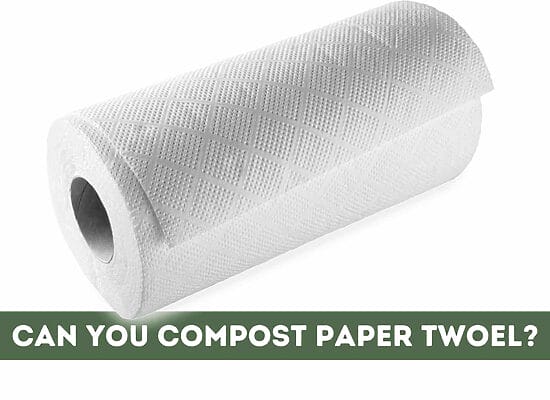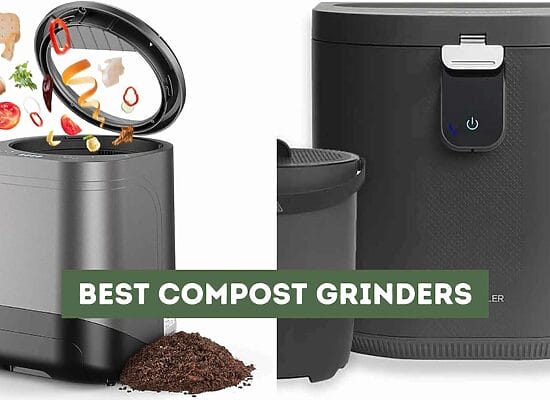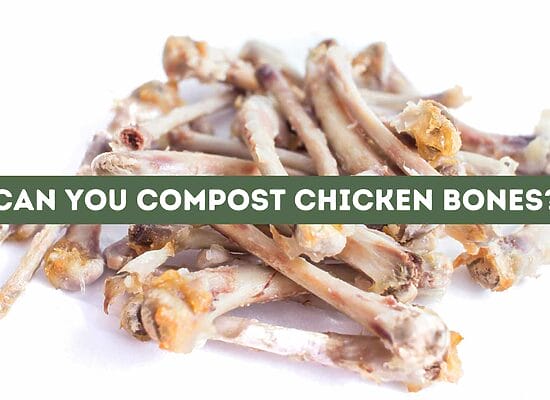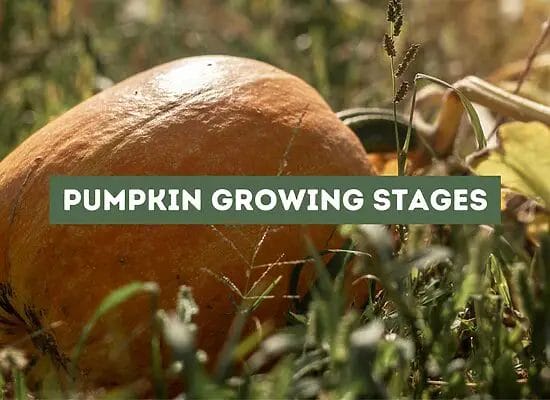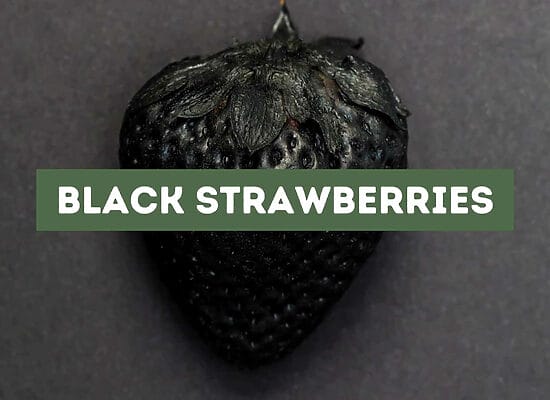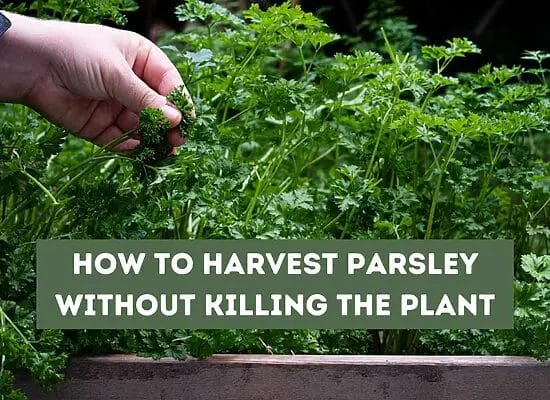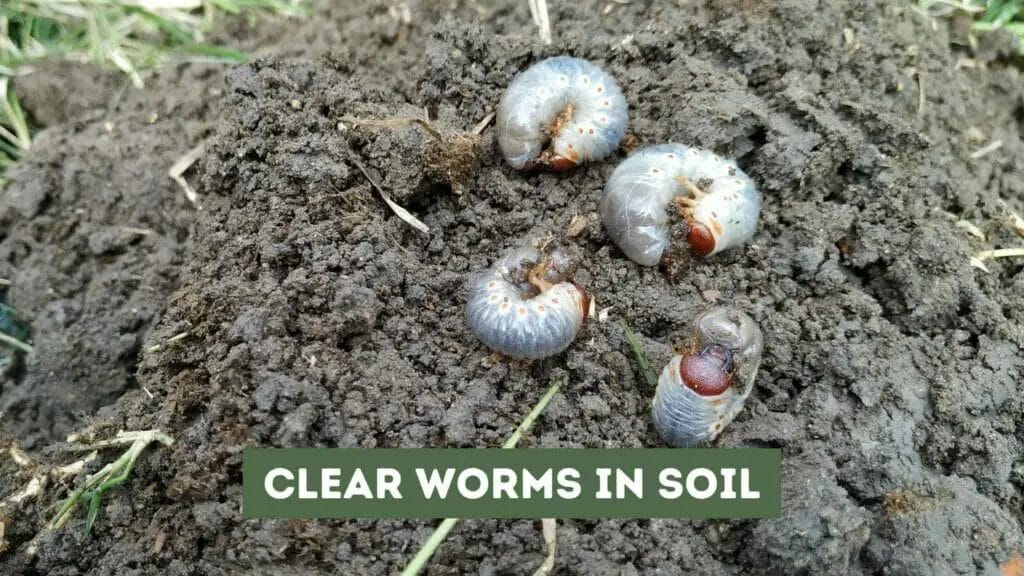
Have you ever noticed clear worms in your garden soil? While it may seem alarming to see these slimy creatures crawling around, they are actually an important part of a healthy garden ecosystem. The clear worms in your soil, also known as pot worms, eat decaying plant matter and help to aerate the soil, improving drainage and adding organic matter.
Clear worms in soil are beneficial for a healthy garden ecosystem. They help aerate the soil, improve drainage, and add organic matter. However, if you notice a large number of clear worms in your soil, it may be a sign of an underlying problem.
Some types of clear worms can indicate a pest infestation or a nutrient deficiency in the soil. It’s important to identify the type of worm and address any issues to ensure the health of your plants.
Below we’ll explore the different types of clear worms you may encounter in your garden soil and provide tips on how to manage them.
Key takeaways:
- Clear worms in the soil, also known as pot worms, are beneficial for a healthy garden ecosystem.
- They aerate the soil, improve drainage, and add organic matter.
- A large number of clear worms may indicate an underlying problem, such as a pest infestation or nutrient deficiency.
- Different types of clear worms include pot worms, fungus gnat larvae, and white worms in compost.
- The harmful effects of clear worms can include root damage, soil dryness, and nutrient depletion.
- Maintain a healthy soil ecosystem by avoiding overwatering, adding organic matter, and preventing excessive worm proliferation.
- Identification, prevention, and treatment methods can help manage clear worms in the soil, including aeration, cultural practices, and selective use of chemicals.
Understanding Clear Worms in Soil
Clear worms in soil are an essential part of the soil ecosystem. They are beneficial to your garden as they help to aerate the soil, improve drainage, and add organic matter. These worms consume plant matter and produce worm castings, which are rich in nutrients and excellent for your plants. However, the presence of a large number of transparent worms in the soil may signal an issue that requires intervention.
Types of Clear Worms in Soil
There are different types of clear worms in soil, and it is essential to understand the differences between them. The most common types of clear worms in soil are:
- Pot worms: These are tiny, white worms that are often found in moist soil. They are harmless to plants and help to break down organic matter in the soil.
- Fungus gnat larvae: These are small, clear worms that are often found in the soil of houseplants. They feed on fungi and organic matter in the soil and can be harmful to plants if they become too numerous.
- White worms in soil: These are small, white worms that are often found in compost or organic soil. They are harmless and help to break down organic matter in the soil.
Harmful Effects of Clear Worms in Soil
While clear worms in soil are generally beneficial, some worms can be harmful to plants. Little white worms or larva of cutworms can feed on the roots of plants, causing them to wilt and die. Nematodes are another type of harmful worm that can cause damage to plants by feeding on their roots. Jumping worms are also harmful as they consume organic matter quickly, leaving the soil dry and nutrient-poor.
To prevent harmful worms from damaging your plants, it is essential to maintain a healthy soil ecosystem. Avoid overwatering your plants, as this can create a moist environment that is ideal for harmful worms to thrive. Make sure to add organic matter to your soil regularly, as this will help to support beneficial worms and other microorganisms that are essential for a healthy soil ecosystem.
Identifying Clear Worms in Soil
If you’re an avid gardener, you might have come across tiny, transparent worms in your soil. These worms can be confusing to identify, but it’s essential to know what you’re dealing with to ensure healthy plants. Here are some tips to identify clear worms in soil.
Appearance of Clear Worms in Soil
Clear worms in soil can come in different shapes and sizes. Some are translucent and significantly bigger than roundworms, such as pot worms. Other tiny clear worms in soil, like nematodes, are almost invisible to the naked eye. They are generally colorless and have a long, slender body.
Behavior of Clear Worms in Soil
Clear worms in soil can have different behaviors. Some are beneficial, while others can be harmful to plants. For instance, the larvae of fungus gnats are tiny white worms that feed on decaying organic matter. They are harmless to plants and can even help break down organic matter in the soil.
On the other hand, nematodes or pot worms can be harmful to plants. They feed on the roots of plants, causing stunted growth and yellowing leaves. If you notice small white worms in your houseplant, it could be a sign of pot worms infestation.
Hints and Tips
If you’re dealing with clear worms in your garden, here are some hints and tips to help you eradicate them:
- Keep your soil moist but not waterlogged. Clear worms thrive in moist soil.
- Use organic matter like compost or mulch to improve soil quality and discourage harmful worms.
- Avoid over-fertilizing your plants. Excess nutrients can attract harmful worms.
- Use a sticky trap to catch adult fungus gnats and prevent them from laying eggs in your soil.
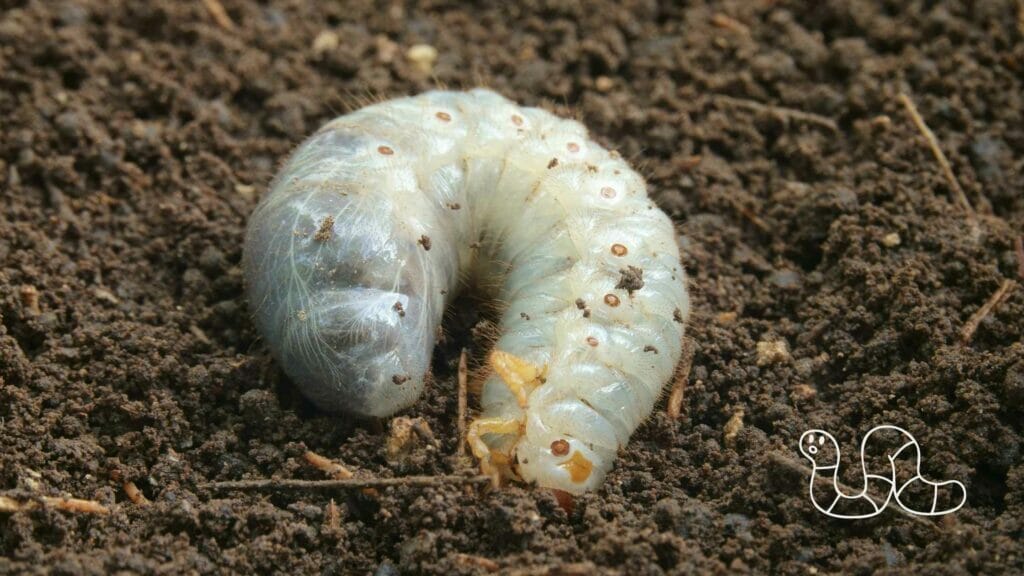
Causes of Clear Worms in Soil
If you have noticed clear worms in your garden or potted plants, you may be wondering what is causing their presence. There are several reasons why these worms may be present in your soil. In this section, we will explore the natural occurrence of clear worms in soil, the presence of organic matter in soil, and the infestation of nematodes and pot worms.
Natural Occurrence of Clear Worms in Soil
Clear worms in soil can be a natural occurrence in healthy garden soil. These worms play an essential role in improving soil fertility and plant growth by breaking down organic matter and producing worm castings. Clear worms in the soil can also contribute to the soil food chain and provide food for many animal and plant species, including soil arthropods and soil bacteria.
Presence of Organic Matter in Soil
The presence of organic matter in soil can attract clear worms. These worms feed on plant roots, and the organic matter provides them with the nutrients they need to survive. If your soil has a high concentration of organic matter, you may notice an increase in the number of clear worms in your garden or potted plants.
Infestation of Nematodes and Pot Worms
Clear worms in your garden soil may also be a sign of an infestation of nematodes or pot worms. Nematodes are plant-parasitic worms that feed off plant roots and can cause severe plant diseases like root-knot diseases and cysts. Pot worms, on the other hand, are either pot worms or fungus gnats’ larva that feed on decaying organic matter and can cause wilting of the plant.
It is essential to identify the type of nematode or pot worm infestation to treat the problem effectively. Insect-parasitic nematodes can be allies in controlling garden-ruining insects, and they can be purchased online or through garden-specific catalogs.
Prevention and Treatment of Clear Worms in Soil
If you notice clear worms in your soil, you might be wondering how to get rid of them. Luckily, there are a few prevention and treatment methods you can use to keep your plants healthy and your soil clear of these pests.
Aeration of Soil
One way to prevent clear worms in soil is to aerate the soil regularly. This helps to create a healthy environment for your plants and can prevent the growth of harmful species. You can aerate the soil by using a garden fork or aeration tool to create small holes in the soil. This will allow air and water to penetrate the soil, which can help to promote healthy root growth and prevent the growth of harmful pests.
Use of Chemicals
If you have a severe infestation of clear worms in your soil, you may need to use chemicals to get rid of them. However, it’s important to use these chemicals carefully and follow the instructions on the label. Some chemicals can be harmful to your plants or the environment if not used properly. Be sure to wear protective clothing and gloves when using chemicals, and keep them out of reach of children and pets.
Cultural Practices
There are also many cultural practices you can use to prevent clear worms in soil. For example, you can rotate your crops each year to prevent the buildup of harmful pests in the soil. You can also choose plant species that are less susceptible to pests and diseases or use companion planting to help repel pests naturally.
In addition, it’s important to maintain a moderate amount of worms in your soil. Worms can be beneficial for soil health, but too many can be harmful to your plants. If you notice an excessive number of worms in your soil, you may need to remove some of them or adjust your cultural practices to prevent their growth.
FAQ: Clear Worms in Soil
What are tiny clear worms in soil?
Tiny clear worms in soil are also known as pot worms or white worms. They are translucent or transparent with a slightly milky color and can be found in both garden and potted plants.
Are clear worms in the soil harmful?
Clear worms in the soil are generally harmless. They feed on organic matter and help break down materials, thus releasing nutrients into the soil, which can benefit plant health. However, too many worms can affect plants by competing for nutrients with roots, causing harm to plant health.
How do clear worms come into my garden?
Clear worms come into the garden through soil and can be found in new soil, compost soil, and in soil with an abundance of nutrients. They might be transferred via mulch, compost, or items brought into the garden from outside.
What is the soil ecosystem?
Soil ecosystem includes different types of soil naturally, such as bacteria and fungi, and soil organisms like nematodes, roundworms, and pot worms. All of them play an important role in soil health and the nutrient cycle.
How can I remove tiny clear worms from my soil?
There are several effective methods for removing clear worms from soil, such as reducing moisture levels, avoiding over-feeding, and adding beneficial nematodes to the soil. You can also remove them with a garden trowel or transplant your plants into new soil that doesn’t have any worms.
What pests can harm my garden because of clear worms?
Clear worms are generally harmless and are not known to directly affect plants. However, if their numbers in the soil are high, they can attract predatory species that can harm plants. Fungus gnat flies that lay eggs in the soil that develop into fungus gnat larvae can be attracted by pot worms.
What are the best practices for maintaining clear soil?
The best practices for maintaining clear soil include providing ideal soil conditions, avoiding overfeeding, maintaining proper moisture levels, and regularly adding new soil to the surface of your soil. You can also prevent clear worms by keeping the soil surface clean and avoiding overwatering your plants.
Are transparent worms in the soil harmful to my potted plants?
Transparent worms are not harmful to potted plants and can actually benefit their growth by supplying nutrients to the soil. However, if their numbers in the soil are too high, they can compete with roots for nutrients, causing harm to plant health.
What should I do if I notice little white worms in my garden?
If you notice little white worms in your garden, you can remove them by hand or treat the soil with beneficial nematodes. However, it’s important to note that not all species of worms and pests are harmful to plants, and some are actually beneficial to soil health.
Can transparent worms migrate to garden soil?
Yes, transparent worms can migrate to garden soil, especially if they are released into the soil or if the soil ecosystem attracts them to the area. However, they are generally harmless and help break down materials to release nutrients into the soil.
What are the harmful worms that can affect my plants?
Harmful worms that can affect plants include root knot nematodes and wireworms. They can cause stunted growth, yellowing leaves, and even kill the plant. It’s important to treat soil with beneficial nematodes to prevent the growth and spread of harmful worms.

